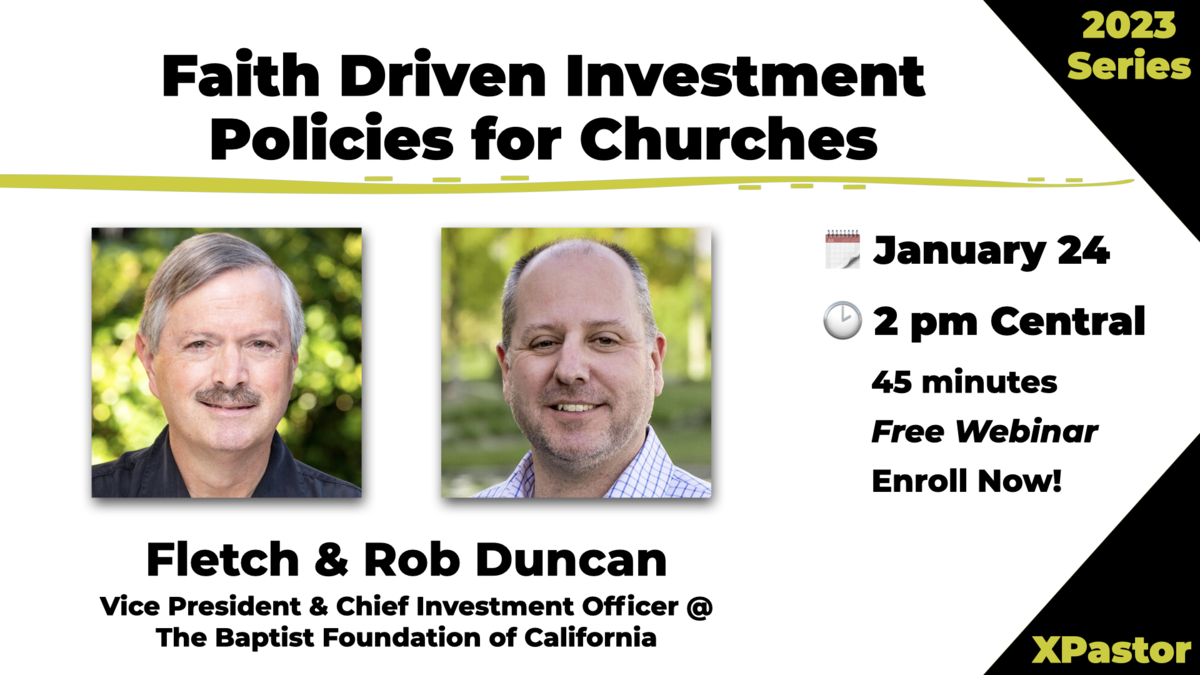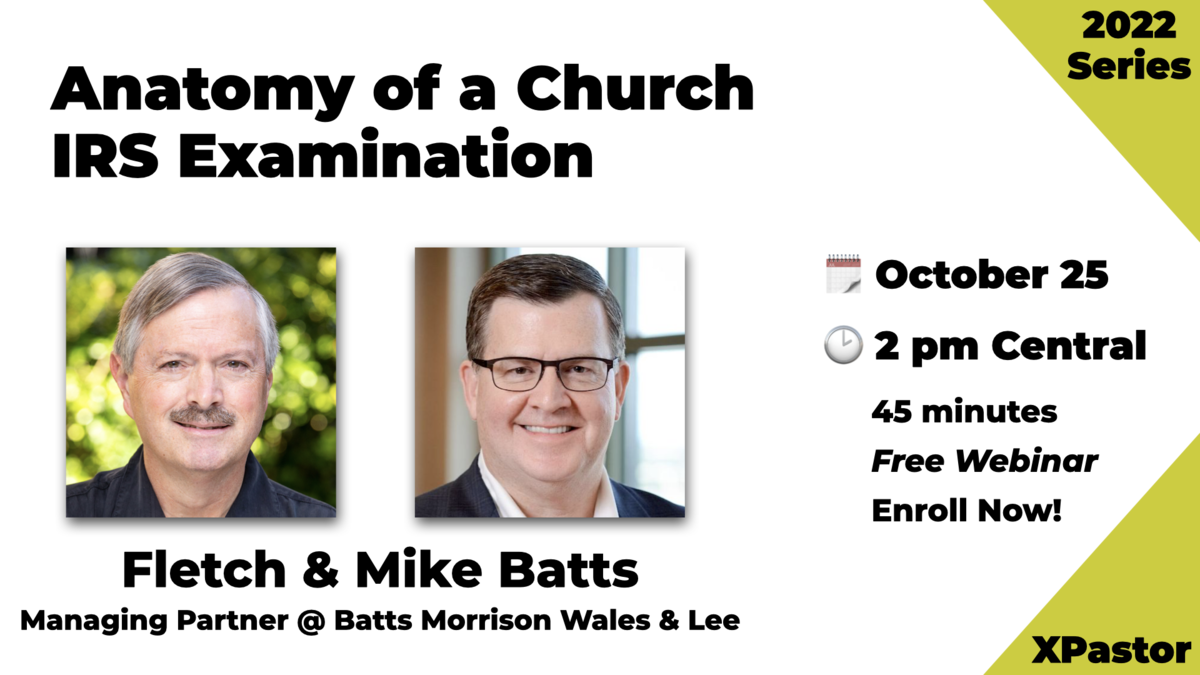Consider the following scenarios: (1) A newspaper headline reads: “Sticky Fingered Deacon Pads Wallet with Offering Plate Funds.” Nobody wants this humiliating portrayal of their church to appear in the paper. (2) A senior pastor dreads addressing the congregation today, and it’s not because he isn’t prepared to preach. He can’t bear the thought of publicly admitting that church contributions have been stolen. How could this happen? (3) A CFO prepares for what will be an uncomfortable meeting with the board. He’s discovered that a staff member has been misappropriating ministry funds. This isn’t supposed to happen in ministry; where does the board draw the line between discipline and forgiveness?
It Could Happen to You
No ministry wants to face these scenarios, but the number of ministries who already have or will in the future is higher than you may think. While most of these situations are caused by people intentionally stealing cash, honest errors also account for significant losses. Either way, this reality highlights a crucial fact: The primary objective and challenge for any ministry is to safeguard their financial assets, most notably their cash donations.
All ministries are more vulnerable to financial loss if they have not implemented a system of internal controls. Policies and procedures, checks and balances, and accurate financial records should all be part of a comprehensive program that ensures financial assets are properly used and protected.
Why is this Important?
Congregants and donors expect their contributions to be handled with integrity and transparency. The treasurer or finance committee requires accurate reporting. The more attention ministry leaders give to the implementation and periodic audit of internal controls, the more likely they will be able to meet these expectations. The goal is to create confidence among donors that ministry funds are being handled responsibly and with integrity.
Every ministry has some level of cash handling policies and procedures, even if they are not expressed in writing. So why are some ministries weak in this area or reluctant to implement appropriate precautions? Many have simply grown lax in following their current procedures. Ironically, others struggle with implementation as a trust issue—the conviction that “our people would never steal money” or that “fraud wouldn’t happen here.” This culture of trust is why many ministries don’t think internal controls are necessary. Why wouldn’t you trust the individuals handling your offerings and donations?
A wiser alternative is to remove opportunities for unauthorized access to cash by developing a strong system of internal controls that protects the people who handle your cash by never allowing them to be in a compromising position. Then your controls, not their character, will confirm their innocence. It’s not a personal issue. You do trust your people. With these controls in place, you are simply removing situations that could result in the violation of that trust.
Getting Started
A foundational principle for any system of internal controls is transparency. This means that if anyone from outside were to review your processes, they’d find them to be above reproach. No system is fool proof, but there are plenty of common-sense ways to properly handle cash. The first step is to identify the right plan for your ministry.
Handling cash is actually pretty simple. It comes in, it’s stored, and it goes out. Let’s look a bit more closely at this process. At a church, for example:
- Cash arrives in many various ways. For example, it can be received through the offering plate, from mid-week services and special events, through the mail, and in-person at the ministry offices.
- The cash is then separated from the checks, and both are counted and recorded. Then the bank deposit is prepared and the cash and checks are sent to the bank. During this process some of the cash may be “recycled”—meaning it is not deposited but instead stored on the premises (in a safe or petty cash box) for ministry use.
Each of these steps presents a need for controls as the cash is “handled.”
Implementing Cash Handling Controls
Dual Custody
A simple but crucial principle in cash handling is dual custody, which means that two or more unrelated individuals are present whenever cash is being handled. For example, are there blind spots in your building where someone carrying cash from one place to another could reach into the collection plate without being seen? Dual custody says to put two people in that location.
The principle of dual custody should be followed from wherever cash is collected to the bank. It is required when the cash is being counted in the deposit, put into the safe, or sealed in a bank deposit bag. Never violate this rule. Following this principle will safeguard your financial assets, reduce controversy, and, barring extreme carelessness or collusion, reduce or eliminate the risk of loss.
Petty Cash
Petty cash drawers require controls too. Petty cash should be assigned to an individual and not accessible to multiple people. Conduct “surprise reconciliations” frequently. All receipts and vouchers should be accounted for and the drawer(s) should always be in balance. Determine an appropriate volume of petty cash and reduce the amount kept on hand. One way to reduce the need for petty cash is by providing appropriate staff with credit, debit, or prepaid cards. A great benefit of these cards is the reporting features available online or over the phone. Of course, these cards need to be safeguarded as well.
Cash Storage
Here are some tips regarding the use of safes or vaults:
- Always require two people (preferably unrelated) to open a safe or vault. A two-party system ensures that no one person has sole access to the safe’s contents.
- If your safe or vault is opened using a combination, never give the entire combination to one person. Split it into segments and give those segments to two or more people.
Separation of Duties
Another principle as important as dual custody is separation of duties. When different people handle separate aspects of a transaction, chances of an error throughout the process diminish. Many ministries overlook this principle. Proper separation of duties means that:
- The person who makes deposits does not also record accounting entries.
- The person responsible for petty cash does not approve requests to replenish the petty cash fund.
- The person who writes checks does not also reconcile bank statements.
- The person who approves expenses does not also sign the checks or initiate payment.
Smaller offices may not have enough staff members to follow these principles. If that is your situation, bring volunteers into the process to implement these checks and balances. Doing so is vital to ensure the accuracy of your financial information and to protect your ministry’s assets.
Additional Security Procedures
Approaches and options for securely handling cash vary from ministry to ministry. Here are some other options for you to consider:
- Always be sure cash is counted in a secure area, preferably a locked room, where there are no distractions or interruptions.
- Check to make sure you are complying with insurance coverage requirements for cash handling and, when possible, require that cash handlers be bonded.
- Rotate service on the counting team.
- Secure your premises. Security cameras in the counting area and at key places around your facility are great deterrents. Lock doors and windows after hours.
- Churches should encourage the use of offering envelopes for cash. Loose cash is easy to grab, cash in an envelope is not. Those visiting or giving one-time gifts of cash should have easy access to generic envelopes.
Put it in Writing!
Once your cash handling plan is finalized, document it in a manual. In addition to policies and procedures, your manual should include sections on preparing the budget, processing transactions, accounting and record keeping, and financial reporting. Review your policies and procedures annually and update the manual if any of them change. Include your internal audit committee in this review, or make the manual available to the CPA firm that conducts your annual audit.
Your cash handling plan should also:
- Establish an audit committee that communicates with the board.
- Define and document policies and communicate processes to monitor compliance.
- Establish an organizational structure with clearly defined roles and responsibilities.
- Give “whistle blowers” an easy, no-fault way to expose a flaw in the system or a violation by another person.
Finally, be sure your staff is qualified to fulfill their roles. Some may benefit from additional training in management or finances. Many organizations, including your financial institution, may provide this type of training. Some offer certification programs to ensure that your staff has the most current financial knowledge.
A system for securely handling cash that includes proper internal controls will give you greater peace of mind, protect your employees and volunteers, will demonstrate your desire to operate with transparency and integrity, and assure your donors that the funds they give are being managed responsibly.
While you may not get much recognition for your efforts in implementing a comprehensive cash handling plan, doing so may keep you from the negative consequences that come when unfortunate situations occur.
View graphics in the original PDF: Handling Cash











